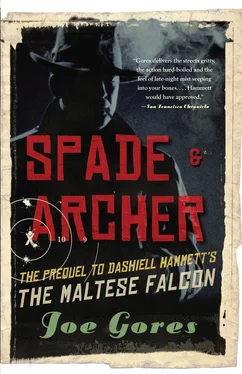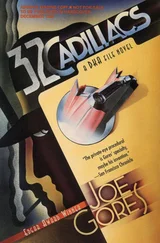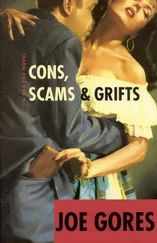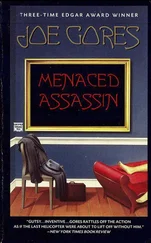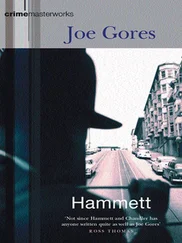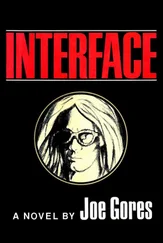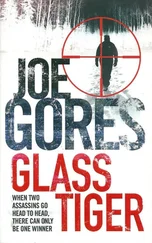He said to her back, “I’m dropping the Eberhard case.”
She turned back in the doorway, shocked.
“But Sam, didn’t you read the memo? Mrs. Eberhard has accepted your offer — to trade the name of her husband’s mistress for her cooperation in trying to get into the Cal-Cit bank records.”
“I saw it.” He gestured at the wastebasket she was holding. “I filed it.”
She took a step closer, then stopped.
He said, “I’m dropping Penny’s case too.”
She responded instantly, putting her knuckles on the desktop so she could lean across it toward him.
“That’s rotten, Sam!” Her eyes were flashing. “She’s in danger, you said so yourself. You can’t just—”
“Can and am.” His voice was sullen. “Too many lies. She made her bed with them, let her lie in it. Or die in it.”
She began, “You’re despic—” then caught herself. Her eyes widened. She began, “What? Are you—”
“I don’t know, angel,” he said with an almost shocking frankness. “I just can’t...” He said again, “Too many lies.”
After a long moment she picked up the wastebasket and left quietly, as from a sickroom, shutting the door behind her.
For half an hour Spade rolled and smoked one cigarette after another while the chill wind through the window whipped the curtains and mussed his pale brown hair. Stubborn thoughts and emotions played across his face as they only did when he was alone. Anger gave way to mulish determination, replaced by irritation, by resignation, finally by a sort of acceptance.
He stood, crossed the office in long strides, threw open the door, crossed to Effie Perine’s desk, said in a rush of words, “You’re right, damn you. I can’t walk away from her. I’m — I can’t let anything happen to her.”
He took hat and topcoat from the rack beside the office door on which appeared SAMUEL SPADE backward on the glass and left.
Three hours later Spade, clear-eyed and quick of step, emerged from the Turkish bath above the billiards hall at 47 Golden Gate Avenue. He walked down to catch a streetcar at Taylor and Market, where the Golden Gate Theatre advertised its current variety acts. It was fifteen minutes shy of noon.
At fifteen minutes past noon, Henny Barber, dressed in a banker’s conservative suit and dull tie, turned from the counter of Van’s Grill on California and Grant with his corned-beef sandwich, apple pie, and coffee. He stopped dead when he saw Spade drinking coffee at his table.
“Eat,” said Spade. “You’re the one with the half-hour lunch break. Is anybody using Eberhard’s office these days?”
“Spaulding. He’s declared himself acting president of the bank, and he’s in Uncle Collin’s office all day every day.”
“Like he’s making sure nobody else gets in there? Maybe like there’s paperwork in there he can’t let anyone else see?”
“Just like that,” agreed Henny in a surprised voice.
“Can you arrange to stay late tonight?” Spade leaned forward. “After hours?”
Henny said around a big bite of corned-beef sandwich, “Sure, easy. I’ll just make sure that my cash fails to balance. Old man Spaulding is death on balancing to the penny. Two nights ago he made Renata Ferrano so nervous that she kept making simple arithmetic errors and had to stay until eleven o’clock to balance out. She told me the night security guy kept bothering her.”
“Gino Mechetti,” said Spade.
Henny was again surprised. “How did you know that?”
Spade grinned and pulled down a lower eyelid with a finger. “She say how many security rounds Gino made while she was there?”
“None. All he did was hang around and bother her.”
“Mmm-hmm, but we can’t count on that. Tonight you have to keep him on the main floor from ten p.m. until one a.m.”
“That might be hard. He knows I want to punch him one on the beezer.”
“You’ll ply him with dago red and make him think he’s the cat’s meow.” Seeing Henny’s puzzlement, Spade added, “Pretend you’re acting in one of those Bohemian Club plays. Outwitting the villain who’s going to tie Pearl White to the railroad tracks.”
Henny started on his pie, laughing as he did. “OK.”
“Do you know exactly where Eberhard’s office is?”
“It takes up the back half of the second floor. Big inner office, with Spaulding in it all day, smaller outer office with one of the tellers sitting there during banking hours even though Uncle Collin is dead.”
“The elevator is where?”
“Fifteen feet away.”
“At night, is it left on the first floor, locked down with the door open? Stairs beside it?”
“Yes on both counts. Gino uses the stairs for his rounds.”
“Tonight make sure he doesn’t get off the ground floor.” Henny nodded and wiped his mouth with his napkin. “If I have to bonk him on the head to keep him there.”
“Good man. I’ll tell you all about it when it’s over.” Spade grinned. “Unless my foot slips and you end up reading about it in tomorrow morning’s Chronicle.”
At 9:32 p.m. hulking Mickey Linehan slammed down five cards faceup on a conference table cleared of everything except chips, cards, whiskey, money, and the players’ elbows.
“Boat!” he chortled with his idiot’s grin. “Jacks over nines. Read ’em and weep, gentlemen.”
Tall lean Woody Robinson shook the big head on his thin stalk of a neck and tossed in his hand. Phil Haultain followed suit. Spade was already turning his pant pockets inside out.
“I’m on the hog, but don’t let me bust up your little game, boys. Just so long as I went broke three hours from now.”
Mickey Linehan, making his half-wit’s face, said, “We done plucked you clean at... twelve forty-three a.m.”
Spade walked down the echoing third-floor hallway to the back stairs, took them down to the street so no one could clock him leaving the Flood Building.
In Pratt Place beside the Chinese social club Sam Spade crouched, leaped up. His gloved hands caught the bottom of the folded-up metal stairs. His weight dragged them down, unfolding them with a shriek of rusted iron. He climbed the three flights of fire escape to the waist-high parapet. On the far side of the flat black tarred roof he dropped lightly down three feet onto the similarly flat roof of California-Citizens Bank.
Shielding his flashlight so only a small circle of light showed, Spade illuminated the lock and hasp on the door of the weathered wooden shed that gave access to the bank’s elevator shaft. It was a solid brass Corbin padlock that weighed a pound.
“Not good,” Spade muttered to himself.
But his light picked out raw wood under the hasp, paint peeled and dried out despite San Francisco’s persistent fog.
“Better,” muttered Spade.
He took a short pry bar from under his mackinaw and inserted it behind the hasp, pulled down. The lock-and-hasp assembly fell onto the roof. Spade opened the shed door, shone his light inside.
There was an eighteen-inch-wide maintenance walkway around the two big wheels that filled the top of the shaft, over which the elevator cables passed. The air was heavy with the smell of lubricating grease.
Spade stepped in and shone his light down. The elevator’s roof was some twenty feet below Spade’s narrow walkway. He pulled up his shirt to unwind a length of rope from around his waist, tied one end around the bottom of one cable wheel, pulled hard to test the knot, grabbed the rope with both gloved hands, and stepped off the walkway. He lowered himself by arm strength alone.
When his booted feet touched the elevator roof his chest was level with the bottom of the second-floor elevator doors. He jammed his pry bar into the intersection, heaved sideways. The doors separated a few inches. He shoved the bar in farther, heaved again. The aperture widened. A third heave gave him an opening he could wriggle through. He listened at the top of the stairs to the muffled sound of male voices, a low burst of laughter. He grinned.
Читать дальше
